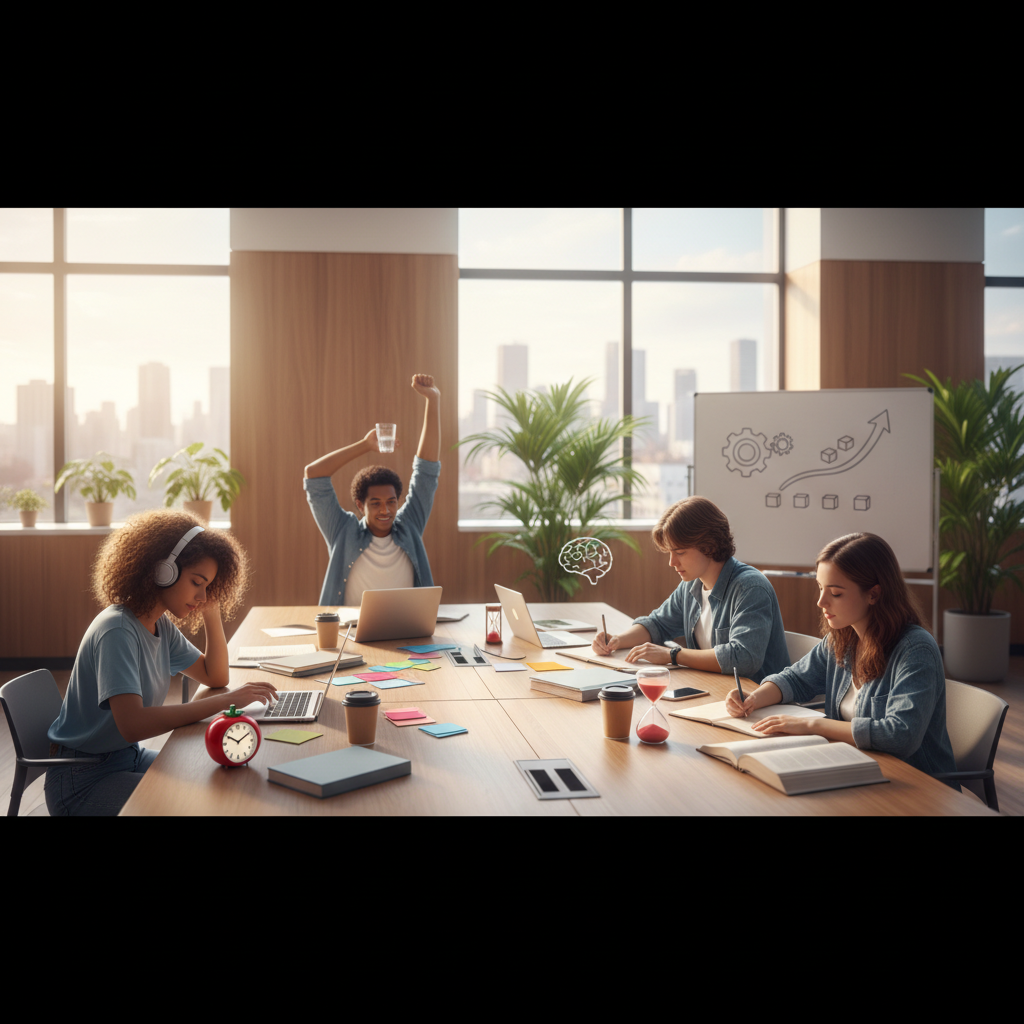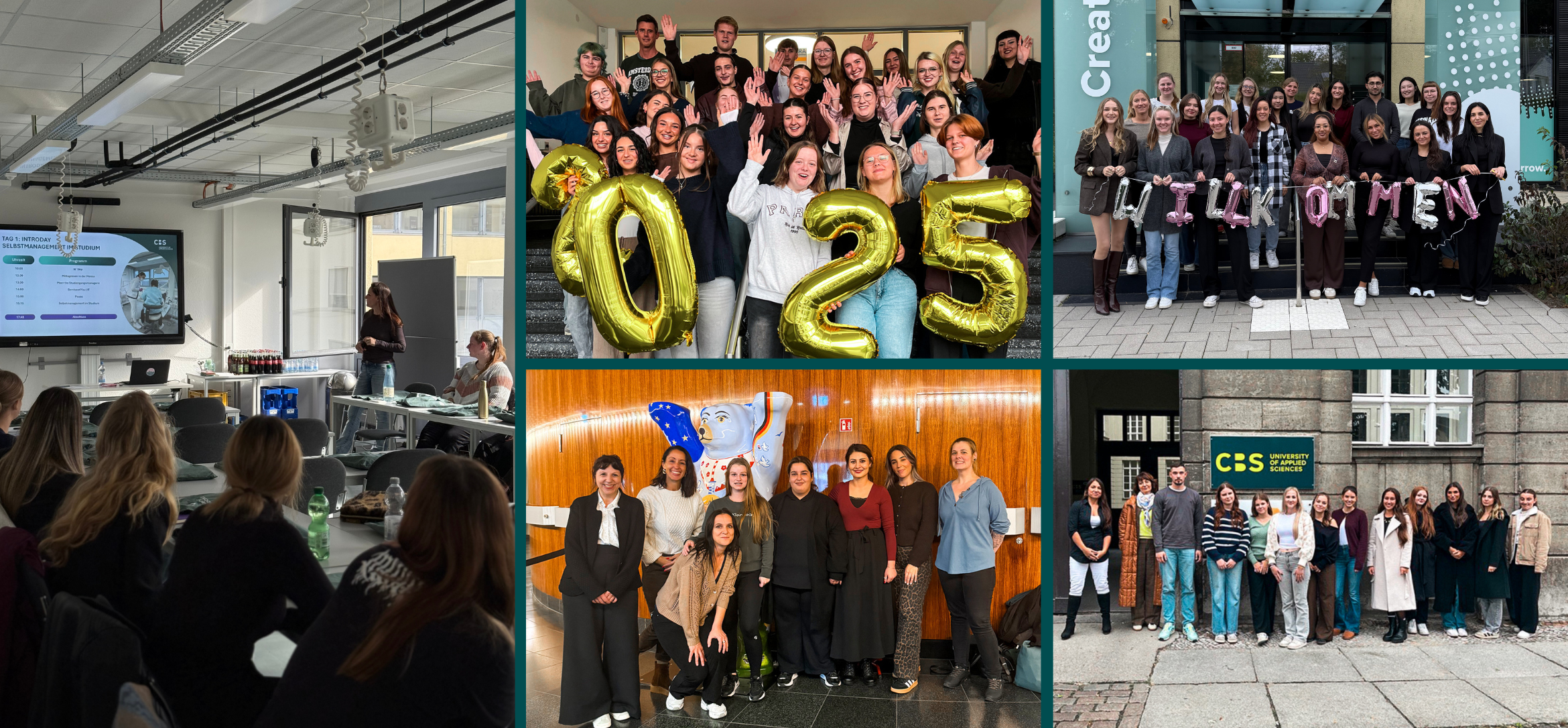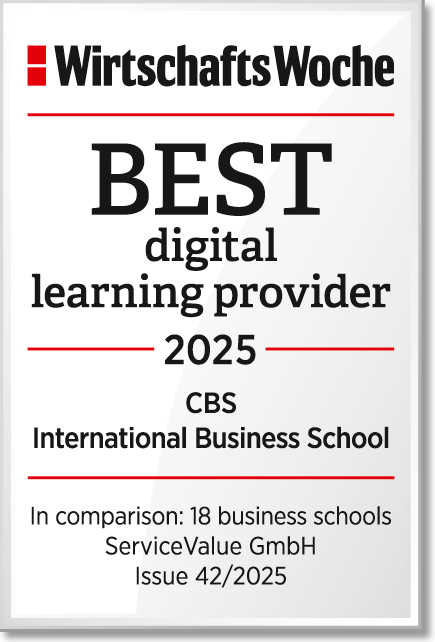
At the beginning of last year, CBS International Business School proclaimed its new mission "Creating tomorrow". Less than two months later, a pandemic was testing the will and ability of all people and organisations worldwide to shape the future. At the same time, it is becoming clear on many levels that the future demands a change towards more far-sightedness and circumspection.
To what extent can a university set an effective course for the challenges of the future and transport modern values into the economy and society? And what are these values in the first place?
With its current accession to the UN Global Compact, the CBS is sending a public signal of the values to which it subscribes and voluntarily undertakes to actively participate in their implementation. We would like to know from President Prof. Dr. Lisa Fröhlich what this step means in concrete terms and what effects it will have on daily activities at the CBS.
At the end of November 2020, CBS became a member of the United Nations Global Compact. Why is our university's participation in this initiative important to you?
By joining the UN Global Compact (UNGC), we have underpinned our commitment to the topic of "Rethinking Business". As a university, we have been focusing our research and teaching on the topic of sustainability for over 10 years. Our university has been a member of PRME (Principles of Responsible Management Education) for several years. I myself have been the spokesperson for the PRME DACH chapter for two years. Since this summer, I have also been a member of the PRME Board and am responsible for the Nomination and Governance Committee. For me, it was the next logical and important step to join the UN Global Compact.
The current pandemic shows us more clearly than ever where our global challenges lie. We need to find new ways of reconciling work and life in harmony with the natural limits of our planet while keeping the common good in mind. The UNGC offers a powerful platform for this and our membership in this network offers the chance to contribute to solutions on a global level. Especially in interaction with PRME, universities, and colleges are able to develop innovative business models together with companies. In my view, education is an essential lever for facing these challenges. However, we are not only educating value-oriented managers, but also the next generation of consumers. This is also where CBS has a great responsibility. Only if we integrate all stakeholder perspectives into our teaching and research concept will we succeed in making real progress towards a sustainable future.
With the declaration of accession, CBS commits itself to implementing the principles formulated by the UN Global Compact in its everyday work and studies. What does this implementation look like in concrete terms?
Since sustainability topics have determined our actions for an exceptionally long time, we already have a lot to offer in terms of the 10 principles of the UNGC. In the area of research, I see our task specifically in providing empirically sound answers to the question of what contribution companies can make to achieving sustainable development at the economic, social, and ecological levels in the sense of the defined goals, the 17 Sustainable Development Goals (SDGs) of the United Nations. In our Business Projects, for example, we work with companies to develop innovative business models for a sustainable future. We then integrate such impulses directly into our teaching.
We are one of the first universities in Germany to offer an integrated sustainability curriculum in all study programmes. In addition, you can also study for a Master's degree at CBS with a focus on "Sustainable Management". One of our recently introduced formats is called "Food for Thought ". Current sustainability topics are discussed with the involvement of diverse stakeholders - companies, academia, NGOs, and of course our students. I see this as a very important and effective contribution of the CBS to the principles of the UNGC. The topics of the future can only be tackled in a strong network of competent players.
Which sustainability topics have special priority at CBS, and which are particularly close to your heart?
Currently, we are in the process of obtaining Ökoprofit certification. In this context, we want to reposition ourselves in the areas of sustainable mobility and climate neutrality. In doing so, we are in close dialogue with our employees, because such sustainable approaches only have an effect if they are adopted throughout the entire company. Personally, our RheinSTART-sponsored Urban Gardening Project is particularly close to my heart. Because with it we make it tangible that many small projects in their entirety create more quality of life and gradually bring us closer to a sustainable solution.
Our students are closely involved in such projects. This brings me to my second topic, which is very close to my heart: our CSR Student Team. I am very proud that we have succeeded in sensitising our students to the sustainable issues of our time. In 2021, we now want to connect our students with those of PRME partner universities on an international level to initiate a global movement. Unfortunately, too many universities and colleges still follow the "old" economic paradigm, which is purely focused on increasing profits and efficiency.
About UN Global Compact
The United Nations Global Compact is the world's largest initiative for companies that acknowledge their overall social responsibility and contribute to the development of markets for the benefit of the economy and society through the development, implementation, and dissemination of responsible corporate governance.
By joining the UNGC, CBS joins more than 11,000 companies and organisations from over 150 countries.
Further information on UNGC
Learn more about Sustainability & Carbon Neutrality at CBS
Coronavirus's impact on supply chain & climate - Interview with Prof. Dr. Lisa Fröhlich
Prof. Dr. Lisa Fröhlich in interview: “We will also master this crisis”
Creating tomorrow: CBS supports demands for a supply chain law
















